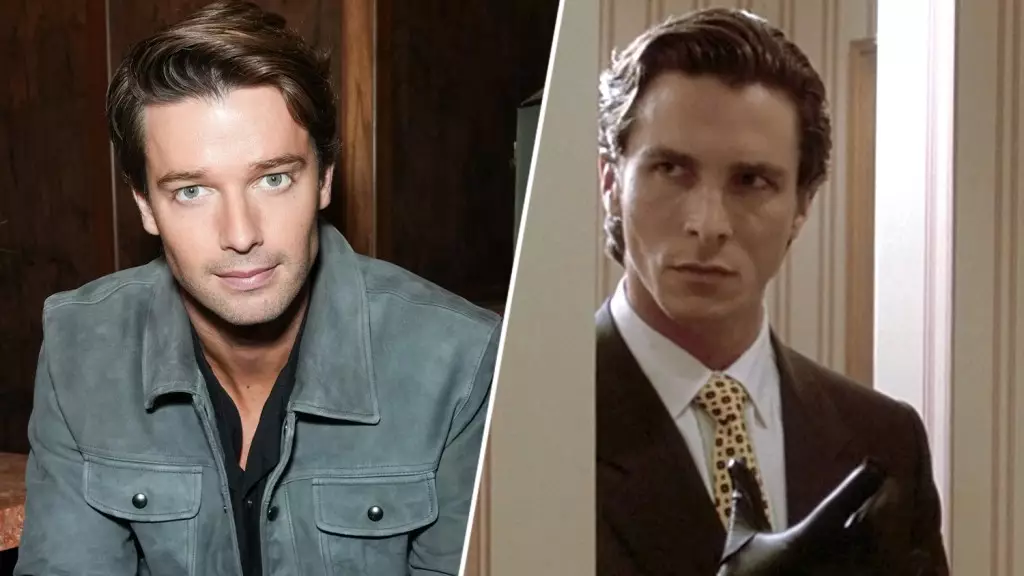The cinematic universe has a way of surprising audiences with unexpected choices, and in the case of Patrick Schwarzenegger, the journey to embody the chilling character of Patrick Bateman in Luca Guadagnino’s upcoming adaptation of *American Psycho* is a fascinating prospect that deserves a closer examination. The potential casting of Schwarzenegger stems from his recent successful appearance in HBO’s critically acclaimed *The White Lotus*, where he wrestled with complex themes and nuanced character development. His desire to step into the shoes of a notorious character such as Bateman signals an ambitious shift in his career — one that could either showcase his dramatic capabilities or invite scrutiny.
A Role Steeped in Controversy
Originally, Christian Bale delivered an unforgettable performance in the 2000 film adaptation of Bret Easton Ellis’s controversial novel, capturing the sociopathic essence of Bateman with brilliant nuance. The character’s combination of charm and brutality reflects a critique of materialism and moral vacuity that resonated with audiences. *American Psycho* not only stirred debates due to its graphic content but also illuminated the dark underbelly of the 1980s yuppie culture. As Schwarzenegger expresses enthusiasm on social media, it raises the question: can he embody this multi-dimensional character who is as alluring as he is horrifying?
The Vision of Luca Guadagnino
With Guadagnino at the helm, the film promises a fresh perspective rather than a mere remake. The director is renowned for his ability to craft emotionally charged narratives, as seen in *Call Me by Your Name* and *Suspiria*. His approach to storytelling delves deeper than mere surface-level horror, emphasizing human emotion and psychological depth. This aligns with the intrinsic complexities of Bateman as a character. The collaboration with screenwriter Scott Z. Burns, known for his work on films like *Contagion*, suggests that the adaptation will offer sharp societal commentary, potentially resonating with contemporary audiences in this age of rampant consumerism and socio-political turmoil.
Schwarzenegger’s Unique Position
What sets Schwarzenegger apart from his predecessors is not just his lineage or Hollywood connections but the potential for reinvention as an actor. His eagerness to tackle such a complex role reveals the depth of his aspirations within the industry. Engaging with a character like Bateman allows him to shatter the confines of typecasting, pushing boundaries that may have been established by his earlier works. However, the monumental expectation that comes with portraying a character already etched into cinematic history looms large. The audience will inevitably compare him to Bale’s iconic performance, thus intensifying the pressure to deliver a contemporary yet haunting depiction that honors the source material while establishing its own identity.
The Forthcoming Debate
As fans and critics await further developments, the discourse surrounding the adaptation intensifies. Will Schwarzenegger’s interpretation redefine Bateman? Or will it falter under the weight of comparison? Regardless, this casting choice invites a conversation about the evolution of iconic characters in modern cinema and serves as a reminder of the complex relationship between audiences and the art of adaptation. The discussions surrounding this film reflect a broader cultural examination of identity, modernity, and the specters of our societal constructs, making it a compelling endeavor purely on the basis of its provocative themes.

